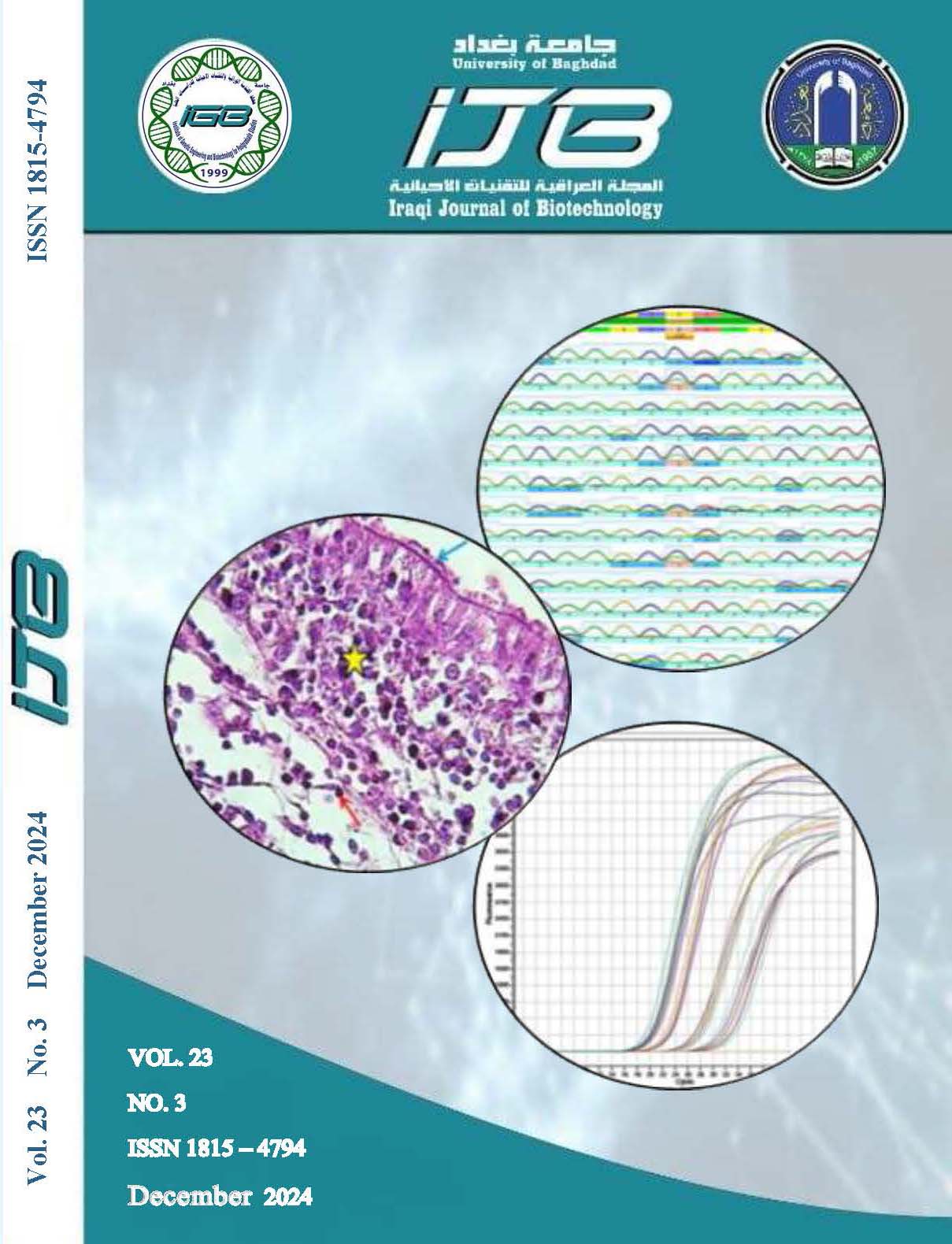Association between TCF7L2 Gene Polymorphism (rs4506565) and with the Risk of Gestational Diabetes Mellitus in Samples of Iraqi Women
Abstract
Gestational diabetes mellitus (GDM) a type of diabetes mellitus 2, a glucose tolerance disorder, first diagnosed during pregnancy especially after the first trimester, in women who have never been diagnosed with diabetes. TCF7L2-related SNPs (4506565) whose type 2 diabetes-associated risk alleles were also associated with a higher risk of GDM.This study aimed to highlighted association between TCF7L2 gene polymorphism (rs4506565) and increased risk of gestational diabetes mellitus in samples of Iraqi women and found the relationship between this SNP and some serum Biochemical levels. The age range in both patient and healthy groups was 17 to 49 years. This study carried out at Institute of Genetic Engineering and Biotechnology, University of Baghdad, the samples were collected from laboratories of Yarmouk Hospital from November of 2022 to February of 2023. Genotyping of rs4506565 was done by HRM technology. The biochemical test of (FBS, HbA1c, ALT, AST, ALP) was determined automatically by COBAS C111 analyser System. The results of genotypes and alleles frequencies of TCF7L2gene (rs4506565) SNP, in controls versus Iraqi Women with GDM showed that the Heterozygous genotype AG and the Homozygous genotype mutant GG at (P=0.0005**) in patient in comparison to control. In addition, allele frequency G was statistically significant difference in women with GDM and without GDM groups at (P=0.001**). The results of Biochemical parameters indicated that increase in the mean of serum FBS and HbA1c concentration in the GDM than the control group with highly significant differences at (P=0.001). The results showed that the association between ALT, AST and ALP and risk of GDM, were non-significant at p-value (0.2, 0.09 and 0.2) respectively. The results also revealed that the relationship between (FBS, HbA1c, ALT, AST, ALP): and the genetic variant (rs4506565): the differences were non-significant with all alleles for patients and controls. The conclusion of this study found The GG and AG genotype may represent a risk factor against the incidence of patients with GDM in Iraqi pregnant women.


